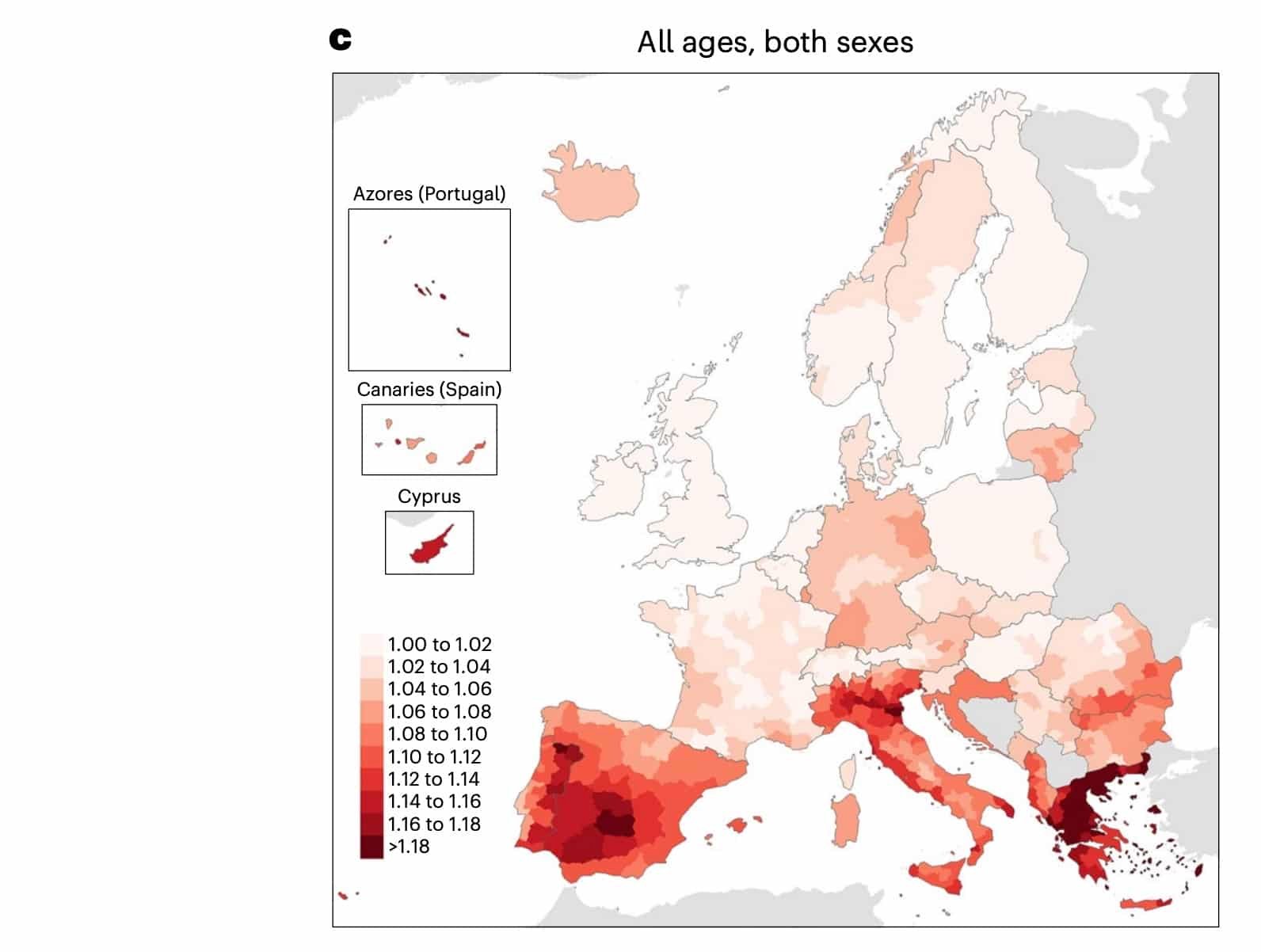(CN) — The estimated number of heat-related deaths in Europe in the summer of 2022 was revised upward by about 7,200 to bring the total to more than 70,000 deaths, a team of researchers said Monday.
In July, researchers led by the Barcelona Institute for Global Health estimated that 62,862 people died during a record-breaking summer in Europe in 2022. That figure was based on epidemiological models of weekly temperatures and mortality data in 35 European countries. The researchers called it the first comprehensive analysis of heat deaths in Europe.
On Monday, those researchers revised their estimate of heat-related deaths last year to 70,066, an increase of 7,204 or about 10% more than previously calculated. The new estimate was published in The Lancet Regional Health–Europe, a peer-reviewed medical journal. The researchers received European Union funding.
The revised estimate was based on a framework the team devised to quantify how many heat-related deaths went uncounted by focusing on weekly temperatures and mortality data.
The new theoretical framework analyzed more precise aggregated daily temperatures and mortality records from 147 regions in 16 European countries where more than 400 million people live.
While hot weather can be deadly, far more deaths actually are linked to cold conditions, the paper noted.
Globally, about 8.5% of deaths in urban areas are linked to cold weather and about 1% to heat, the paper said. In Europe, the findings were similar with 7.2% of deaths in both urban and rural areas attributed to weather conditions (6.5% due to cold, 0.6% to heat).
The July study, published in Nature Medicine, used computer models to examine deaths across 35 European countries, narrowing in on deaths between May 30 and September 4, last year's hottest months. The research found the most heat-related deaths took place in Italy (18,010 deaths), Spain (11,324 deaths) and Germany (8,173 deaths).
The dangers of extreme heat have become a matter of grave concern in Europe since devastating heat waves in 2003 killed more than 71,000 people. Another heat wave that hit Moscow and western Russia in the summer of 2010 led to more than 55,000 heat deaths.
After the deadly 2003 summer, European Union governments developed plans to alert people, in particular the elderly, about the dangers of heat. Meanwhile, the number of air-conditioning units in European homes and businesses has been increasing.
Extreme heat is particularly dangerous for older people with preexisting heart and respiratory diseases. Those who are poorer and more isolated are also considered more at risk. The study found more women than men died last year due to the extreme heat.
The researchers warned that European authorities, especially those in southern Europe, must do even more to protect vulnerable people from heat waves because Europe is warming so fast. Due to its geographic location, the continent is heating faster than other parts of the world as heat-trapping gases, released through human activities, continue to build up in the atmosphere.
In the past 30 years, temperatures in Europe have increased by more than twice the global average of 1.2 degrees Celsius (2.16 degrees Fahrenheit) above preindustrial levels. Scientists attribute this warming trend in Europe to warm currents from the Sahara Desert and Africa; heat generated by the Mediterranean Sea; and the loss of sea ice in the Barents Sea and around the Norwegian archipelago of Svalbard.
If Europe continues to warm on this trajectory, the European researchers project summers will become ever more perilous.
More than 68,000 people could be dying due to heat every summer by 2030, the researchers calculated; that number could rise to more than 94,000 deaths, or 120,610 deaths by 2050.
Worldwide, research into the dangers of heat waves is receiving a lot more attention as the number of excess heat deaths grows along with global warming and other trends, such as urbanization, demographic growth and an aging population.
This summer saw even hotter temperatures than last summer in Europe and preliminary estimates indicate a high number of excess deaths were caused by heat stress.
Courthouse News reporter Cain Burdeau is based in the European Union.
Subscribe to Closing Arguments
Sign up for new weekly newsletter Closing Arguments to get the latest about ongoing trials, major litigation and hot cases and rulings in courthouses around the U.S. and the world.









